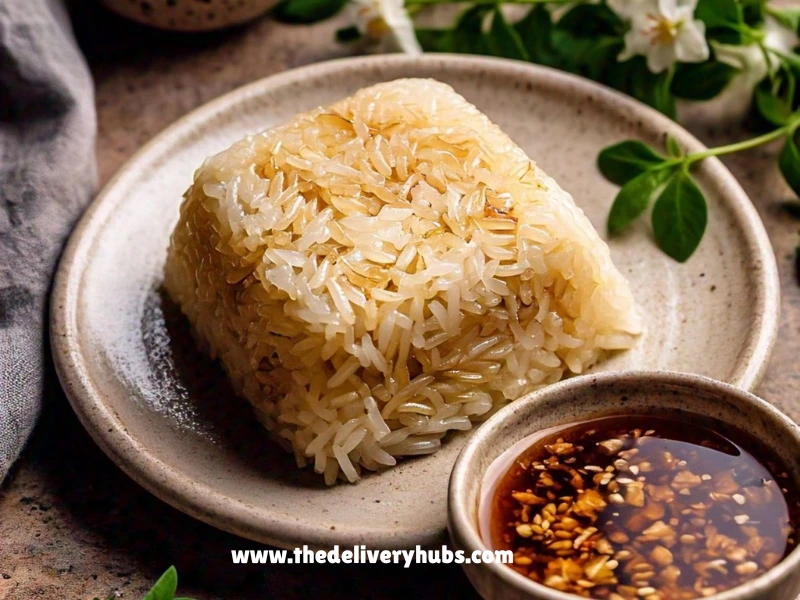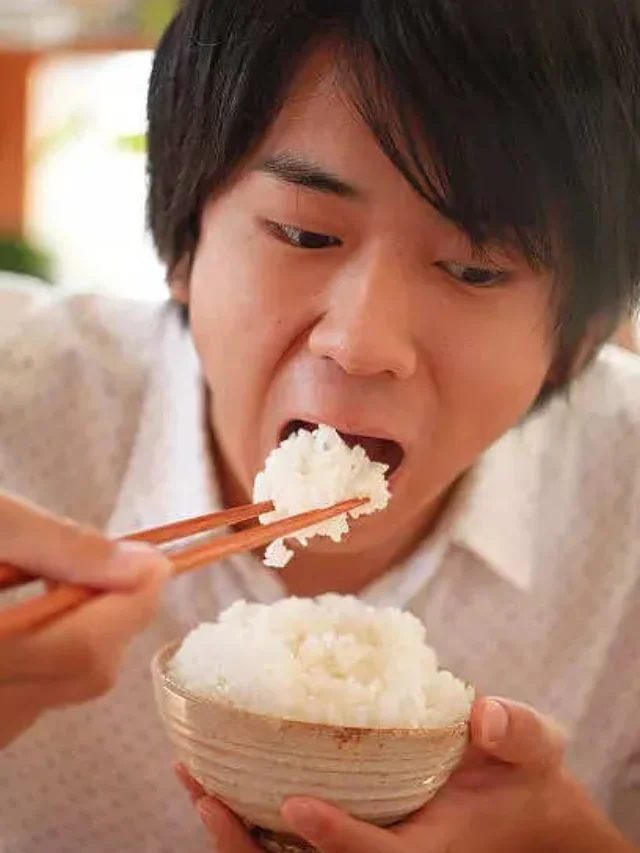Sticky rice is a popular dish that is loved for its unique texture and versatility. It’s a key part of many Southeast Asian cuisines, from sweet desserts to savory sides. If you’ve ever wanted to make sticky rice at home but weren’t sure how, this guide will make it easy. With simple steps and helpful tips, you’ll be able to make perfect sticky rice every time.
What is Sticky Rice?
Understanding Sticky Rice
Sticky rice, also called glutinous rice, is a type of rice known for its sticky texture when cooked. It’s a staple in countries like Thailand, Laos, and Vietnam, where it’s used in everything from sweet mango sticky rice to savory rice dumplings. Unlike regular rice, sticky rice has a high starch content, which is why it clumps together.
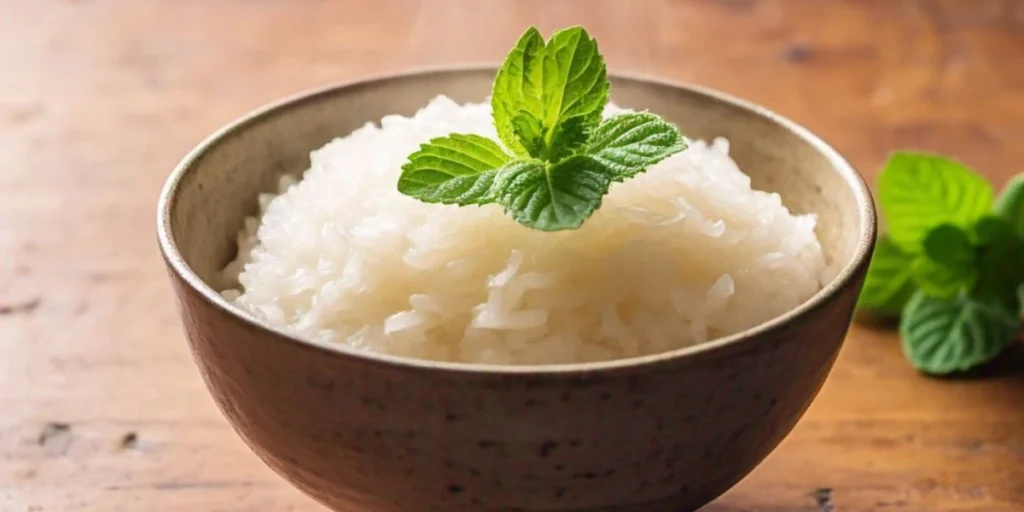
Why Is It Called Sticky Rice?
Sticky rice gets its name from the way it clings together after cooking. This stickiness makes it easy to shape into balls or pick up with your hands or chopsticks. The texture is soft, chewy, and slightly sweet, making it a favorite in many dishes. Its unique characteristics come from the high amount of amylopectin, a type of starch.
Ingredients for Sticky Rice
What You’ll Need
To make sticky rice, you only need a few simple ingredients:
- Sticky (glutinous) rice
- Water
- Optional: Coconut milk or pandan leaves to enhance the flavor
Sticky rice is easy to find at Asian grocery stores or online. Look for bags labeled “glutinous rice” or “sweet rice.” These are specifically made for dishes requiring that signature stickiness.
Where to Find Sticky Rice
If you don’t have access to a local Asian store, many online retailers sell sticky rice. It’s worth checking out the international aisle of your grocery store, too. Buying good-quality sticky rice ensures the best results for your dishes.
Step-by-Step Guide to Making Sticky Rice
Soaking the Rice
Soaking the rice is a crucial first step. It softens the grains and ensures they cook evenly. Place the rice in a large bowl, cover it with water, and let it soak for 4-6 hours or overnight.
Why Soaking is Crucial
Soaking the rice breaks down the outer layer of starch and helps the grains absorb water. This process is what gives sticky rice its signature chewy texture. Skipping this step can result in unevenly cooked rice.
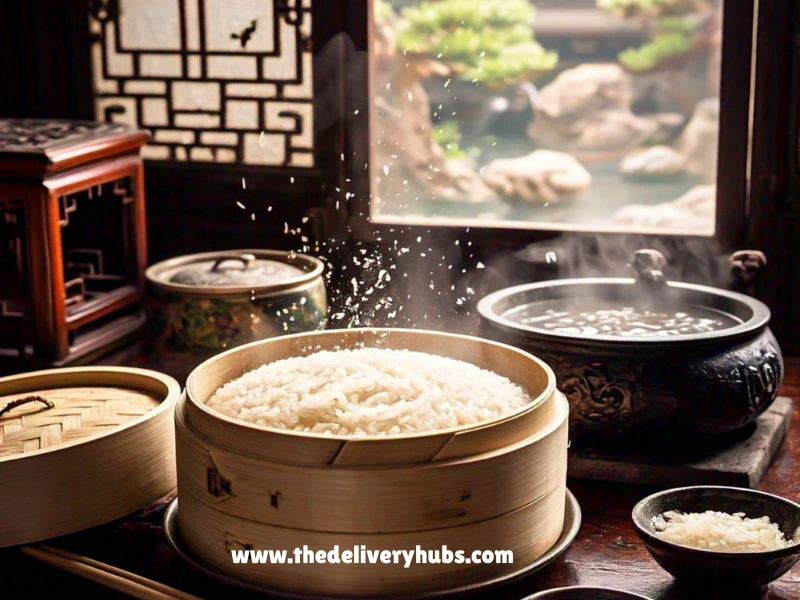
Cooking Methods
Traditional Steaming
- After soaking, drain the rice and transfer it to a bamboo steamer lined with cheesecloth or a banana leaf.
- Place the steamer over boiling water and cover it with a lid.
- Steam for 20-25 minutes, flipping the rice halfway through for even cooking.
Picture Section: Bamboo Steamer Setup
Image prompt: A bamboo steamer with glutinous rice cooking over a pot of boiling water.
Rice Cooker Method
- Add the soaked rice to your rice cooker with an equal amount of water (1:1 ratio).
- Set the cooker to the sticky rice or regular setting.
- Let the rice rest for a few minutes after cooking before serving.
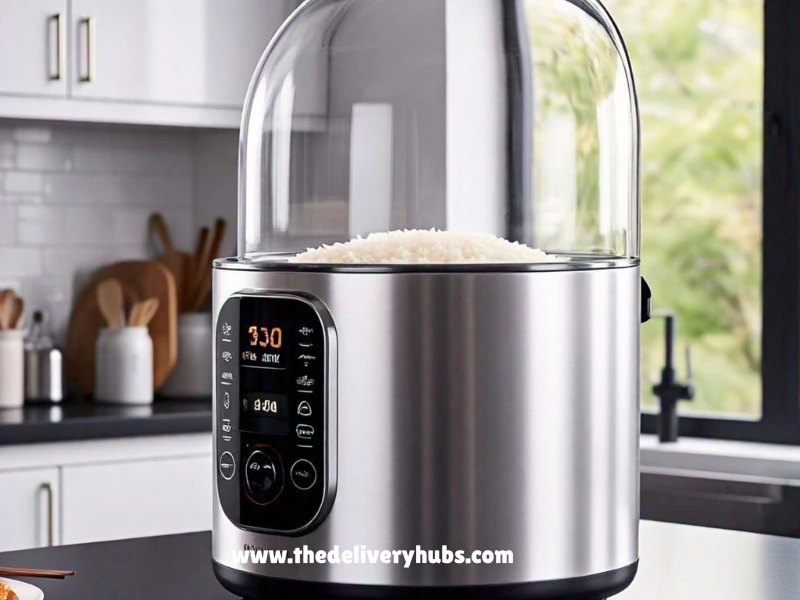
Tips for Perfect Sticky Rice
Avoid Common Mistakes
To get the best results, avoid these common mistakes:
- Skipping the soaking step, which leads to uneven cooking.
- Adding too much water, which can make the rice mushy.
Enhancements for Flavor
For extra flavor, cook the rice with coconut milk or pandan leaves. These additions give the rice a sweet aroma and enhance its natural flavor.
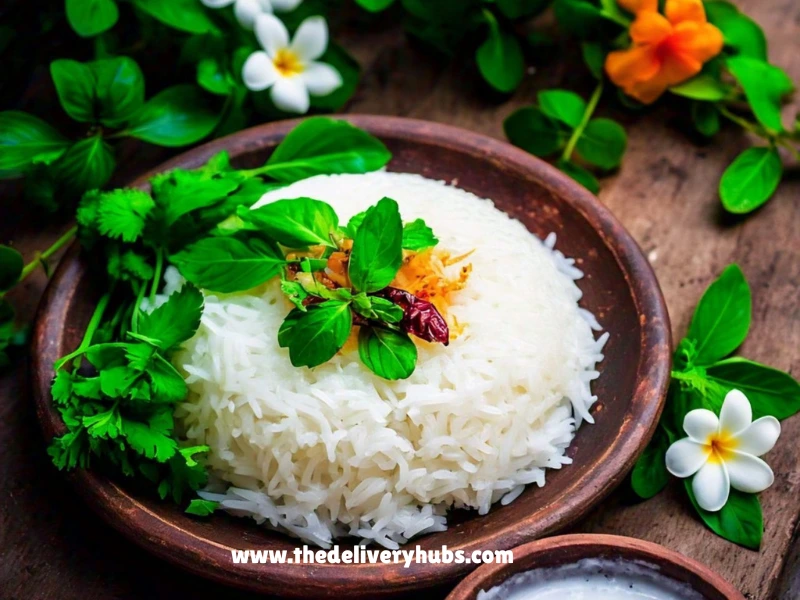
Dishes to Serve with Sticky Rice
Sweet and Savory Pairings
Sticky rice pairs well with many dishes:
- Sweet: Try it with fresh mango slices and a drizzle of sweet coconut sauce.
- Savory: Serve alongside grilled vegetables, tofu, or a rich curry.
Creative Uses for Leftovers
Leftover sticky rice can be used in creative ways:
- Form small rice balls and dip them in soy sauce for a snack.
- Add it to soups or stews for a hearty addition.
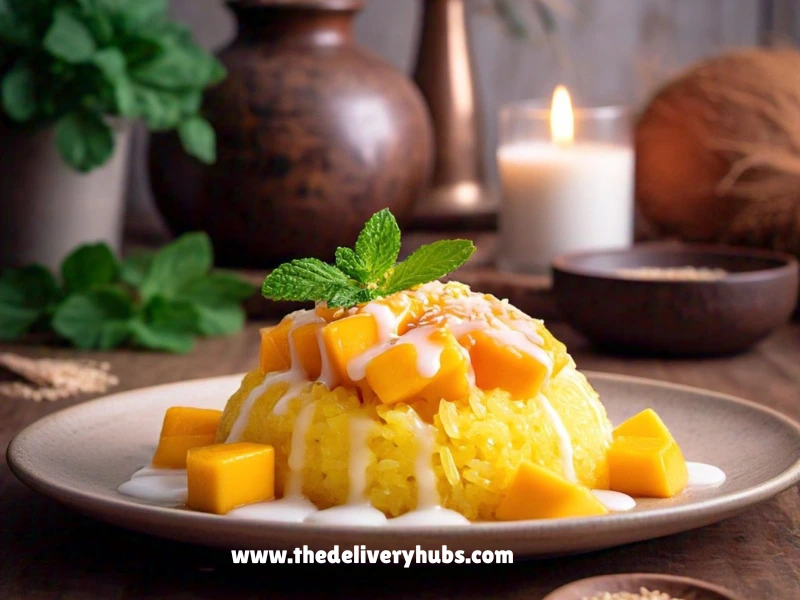
FAQ Section
Q: Can I make sticky rice without a rice cooker?
A: Yes! You can use a bamboo steamer or even a regular pot with a steaming basket. The traditional method works just as well.
Q: How do I store leftover sticky rice?
A: Keep it in an airtight container in the fridge for up to 3 days. To reheat, sprinkle a little water over the rice and steam or microwave it.
Q: What dishes pair best with sticky rice?
A: Sticky rice pairs wonderfully with both sweet and savory dishes like curries, grilled vegetables, and mango sticky rice.
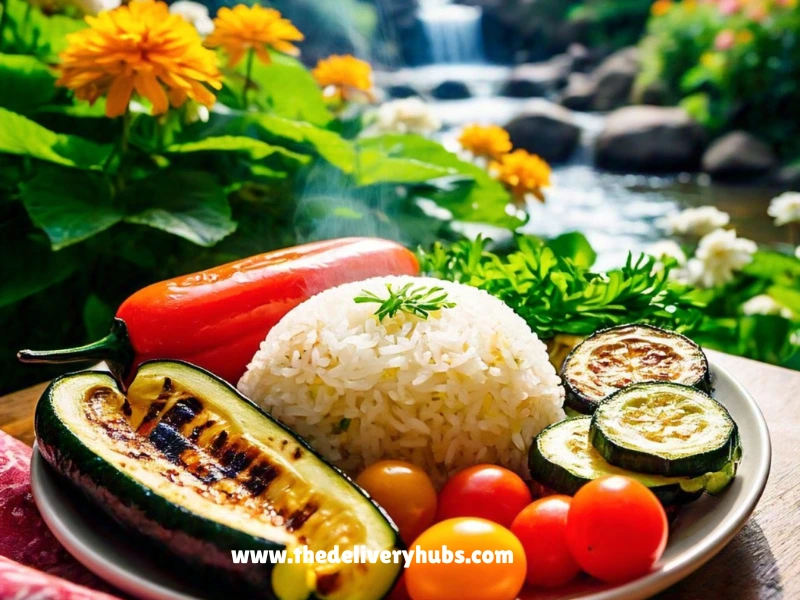
Internal Links
- Explore more: 7 Delicious Oil-Free Vegan Cabbage Recipes
- Try this: 6 Yummy Vegan Desserts for a Perfect Sweet Treat
Conclusion
Making sticky rice at home is simple when you follow these steps. It’s a versatile dish that can be enjoyed with sweet or savory meals. Whether you’re serving it with mango or a flavorful curry, sticky rice is sure to impress. Try it out and let us know how it turned out for you!
